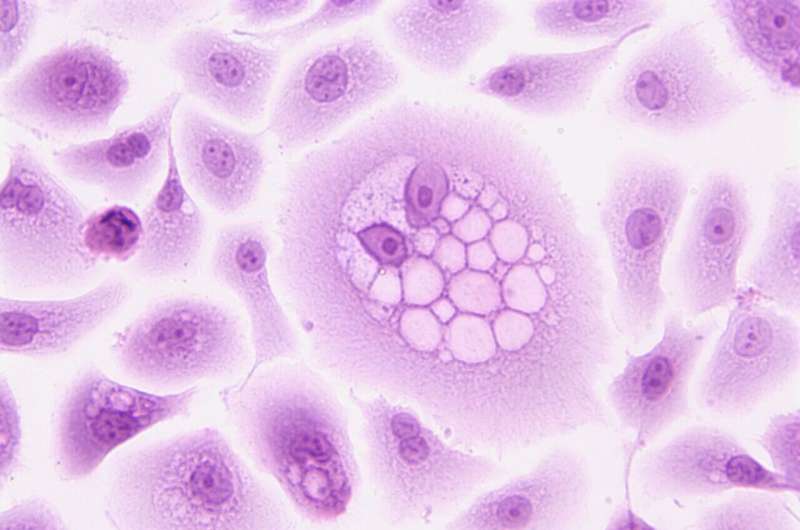Researchers create algorithm to help predict cancer risk associated with tumor variants

Vanderbilt researchers have developed an active machine learning approach to predict the effects of tumor variants of unknown significance, or VUS, on sensitivity to chemotherapy. VUS, mutated bits of DNA with unknown impacts on cancer risk, are constantly being identified. The growing number of rare VUS makes it imperative for scientists to analyze them and determine the kind of cancer risk they impart.
Traditional prediction methods display limited power and accuracy for rare VUS. Even machine learning, an artificial intelligence tool that leverages data to “learn” and boost performance, falls short when classifying some VUS. Recent work by the lab of Walter Chazin, Chancellor’s Chair in Medicine and professor of biochemistry and chemistry, led by co-first authors and postdoctoral fellows Alexandra Blee and Bian Li, featured an active machine learning technique.
Active machine learning relies on training an algorithm with existing data, as with machine learning, and feeding it new information between rounds of training. Chazin and his lab identified VUS for which predictions were least certain, performed biochemical experiments on those VUS and incorporated the resulting data into subsequent rounds of algorithm training. This allowed the model to continuously improve its VUS classification.
The researchers validated their approach on four proteins known to be implicated in cancer. With a validated algorithm in hand, they analyzed uncharacterized VUS involved in a DNA repair pathway called NER—mutations in DNA repair pathways are frequently associated with cancers—and demonstrated that active machine learning could better predict the variants’ effects on cancer risk compared with traditional machine learning.
Although rare VUS identified in tumor genomes are unlikely to be primarily responsible for the initial development of those tumors, they may nevertheless impact tumor growth and response to therapy. Characterizing VUS can help maximize clinical care, and adding active learning frameworks to the VUS-interpretation toolkit can improve clinicians’ ability to employ precision medicine for each patient.
Published in Cancer Research, this work lays the foundation for studies on the mechanisms underlying the dysfunction and chemotherapeutic response of cells expressing certain VUS involved in NER.
Source: Read Full Article
